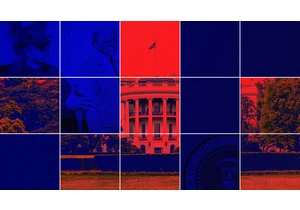Perplexity AI has presented a new proposal to TikTok’s parent company that would allow the U.S. government to own up to 50% of a new entity that merges Perplexity with TikTok’s U.S. business, according to a person familiar with the matter.
The proposal, submitted last week, is a revision of a prior plan the artificial intelligence startup had presented to TikTok’s parent ByteDance on January 18, a day before the law that bans TikTok went into effect.
The first proposal, which ByteDance hasn’t responded to, sought to create a new structure that would merge San Francisco-based Perplexity with TikTok’s U.S. business and include investments from other investors.
The new proposal would allow the U.S. government to own up to half of that new structure once it makes an initial public offering of at least $300 billion, said the person, who was not authorized to speak about the proposal. The person said Perplexity’s proposal was revised based off of feedback from the Trump administration.
If the plan is successful, the shares owned by the government would not have voting power, the person said. The government also would not get a seat on the new company’s board.
ByteDance and TikTok did not immediately responded to a request for comment.
Under the plan, ByteDance would not have to completely cut ties with TikTok, a favorable outcome for its investors. But it would have to allow a “full U.S. board control,” the person said.
Under the proposal, the China-based tech company would contribute TikTok’s U.S. business without the proprietary algorithm that fuels what users see on the app, according to a document seen by the Associated Press. In exchange, ByteDance’s existing investors will get equity in the new structure that emerges.
The proposal seems to mirror a strategy Steven Mnuchin, treasury secretary during Trump’s first term, discussed Sunday on Fox News’s Sunday Morning Futures—that a new investor in TikTok could simply “dilute down” the Chinese ownership and satisfy the law. Mnuchin has previously expressed interest in investing in the company.
“But the technology needs to be disconnected from China,” he added. “It needs to be disconnected from ByteDance. There’s absolutely no way that China would ever let us have something like that in China.”
The Perplexity proposal comes as several investors are expressing interest in TikTok. President Donald Trump said late Saturday that he expects a deal will be made in as soon as 30 days.
On a flight from Las Vegas to Miami on Air Force One, Trump also said he hadn’t discussed a deal with Larry Ellison, CEO of software maker Oracle, despite a report that Oracle, along with outside investors, was considering taking over TikTok’s global operation.
“Numerous people are talking to me. Very substantial people,” Trump said. “We have a lot of interest in it, and the United States will be a big beneficiary. . . . I’d only do it if the United States benefits.”
Under a bipartisan law passed last year, TikTok was to be banned in the United States by January 19 if it did not cut ties with ByteDance. The Supreme Court upheld the law, but Trump then issued an executive order to halt enforcement of the law for 75 days.
Trump, on Air Force One, noted that Ellison lives “right down the road” from his Mar-a-Lago estate, but added, “I never spoke to Larry about TikTok. I’ve spoken to many people about TikTok and there’s great interest in TikTok.”
TikTok briefly shut down in the U.S. a week ago, but went back online after Trump said he would postpone the ban. Trump had unsuccessfully attempted a U.S. ban of the platform during his first term. But he has since reversed his position and has credited the platform with helping him win more young voters during last year’s presidential election.
TikTok CEO Shou Chew attended Trump’s inauguration January 20, along with some other tech leaders who’ve been forging friendlier ties with the new administration.
Congress voted to ban TikTok in the U.S. out of concern that TikTok’s ownership structure represented a security risk. The Biden administration argued in court for months that it was too much of a risk to allow a Chinese company to control the algorithm that fuels what people see on the app. Officials also raised concerns about user data collected on the platform.
However, to date, the U.S. hasn’t provided public evidence of TikTok handing user data to Chinese authorities or allowing them to tinker with its algorithm.
—Haleluya Hadero and Christopher Rugaber, AP Business Writers
Inicia sesión para agregar comentarios
Otros mensajes en este grupo.

The first 100 days of Trump’s second presidential term have included a surprising player that doesn’t seem likely to go away anytime soon: Signal.
The encrypted messaging pl

Cancer research in the U.S. doesn’t rely on a single institution or funding stream—it’s a complex ecosystem made up of interdependent parts: academia, pharmaceutical companies, biotechnology start
Dive into the exhilarating world of innovation with FC Explains, a video series that spotlights the game changers and visionaries from Fast Company’s prestigious Most Innovative Companies list. Th

Elon Musk’s Department of Government Efficiency has torn through Washington at breakneck speed. During the first 100 days of President Donald Trump’s second term, DOGE has played a central role in

After Pope Francis’s funeral was held over the weekend, attention has now turne

Shares of Deliveroo, the food delivery service based in London, are hitting three-year highs on Monday after it received a $3.6 billion

Social media users have been having a field day with Waymo’s autonomou
